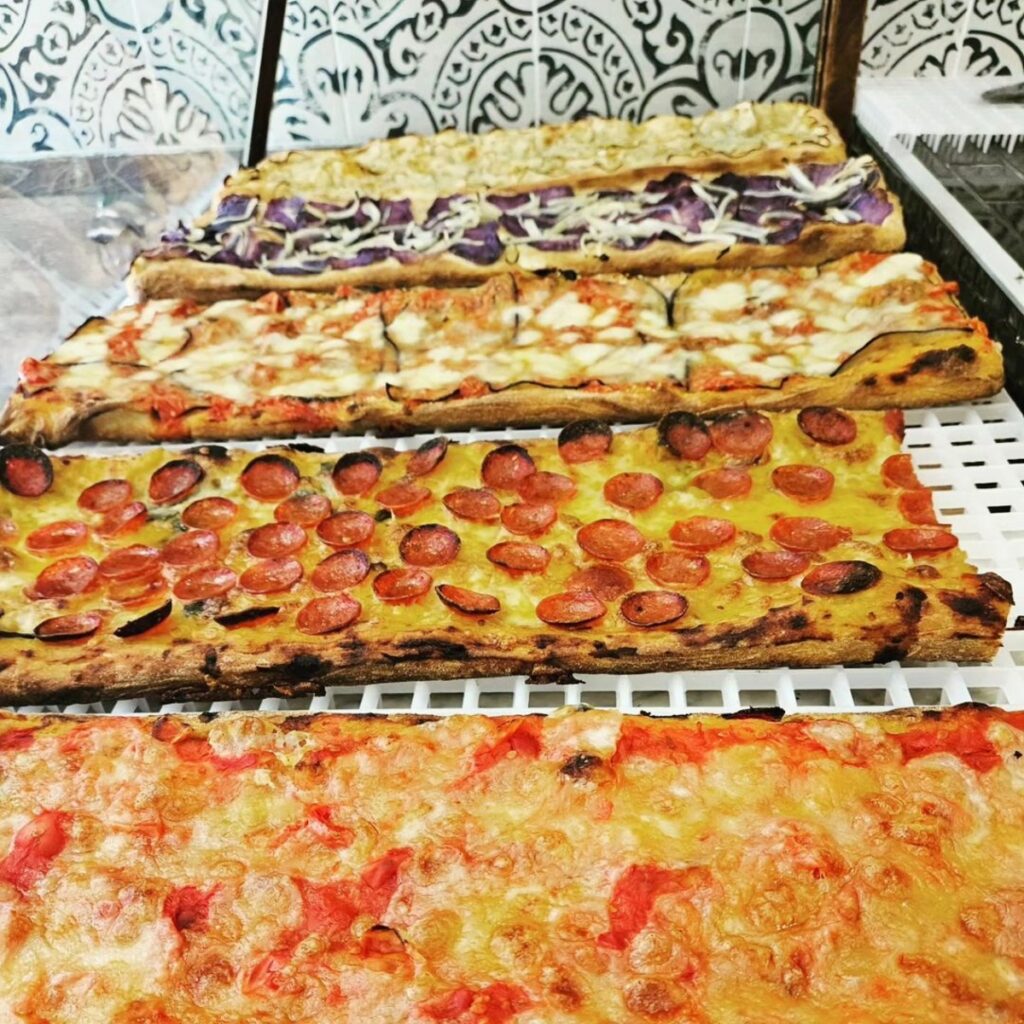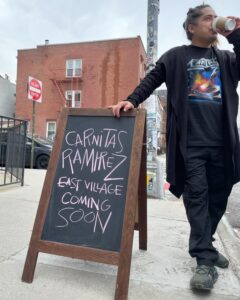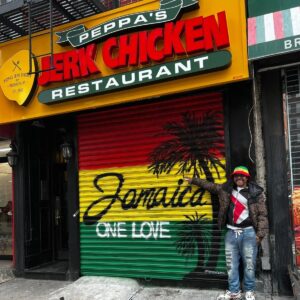A new authentic pizzeria, Potenza Centrale, has replaced the space formerly occupied by KC Gourmet Empandas at 38 Avenue B in the East Village.
Sign up now to get our Daily Breaking News Alerts
Owner Luigi Iasilli created the concept as an homage to his hometown in the mountain ranges of Southern Italy of the same namesake. The small space with a mere 400-square-foot kitchen will be take-out only, with its kitchen helmed by Chef Alex Chavarria who will make the region’s unique fermented-style pizza.
Iasilli formerly owned a concept upstate, as well as Max at 51 Avenue B before it shuttered 10 years ago, which makes his triumphant return to the East Village’s Avenue B a “full circle” moment for him.
“For me, it’s already a great deal to be back in the neighborhood where it all started for me 24 years ago,” Iasilli tells What Now New York. “It’s quite shocking that I found this little place – it’s also emotional in a way.”
His shop will uniquely offer the fermented pizza from his small hometown in the mountains of Southern Italy.
“I believe it will be something new,” he says. “[Americans] call it pizza, but the way it’s made, it’s like a focaccia with toppings.”
“It’s nice for a neighborhood to have a local place that makes something homemade. The opportunity I saw here is there’s not a single place on the avenue that sells pizza by the slice.”
Unlike the Roman-style pizza we know and love in New York, this Southern country-style technique requires a long fermentation process – he compares the laborious process to that of making champagne, which is at risk for extinction because of climate change – to create an “airy” dough.
It also uses a different flour and yeast, which he says is very light and uniquely “very easy to digest.” He says he is very conscious of where he sources his food since, for example, processed flour has been linked to cancer, saying “I think people should be more aware of what they eat.”
Similar to Sicilian-style pizza in the US, it is also rectangular or square instead of round. However, he says it is a “very bubbly bread” that is “not thick or chewy” and “crispy at the bottom.”
He teases that it’s “hard to explain” and encourages people to “just try it” for themselves.
Coming from a smaller town and quieter region, which he left at 23-years-old to come to the US, he says he is “absolutely” proud to represent his region and bring its cuisine to the country.
“You don’t really have people from my region,” he says, joking “even Italians in Italy don’t know where it is.”
He adds about the region: “We don’t have the exposure.”
He says the Basilicata region is known for its wine, homemade pasta, cheeses and bread, specifically its famed pane di matera, an ancient bread of the region, which he scuffs the Times wrote a “nasty column about.”
While he says he is focused on pizza, he is also hoping to have other offerings including baked gnocchi, which he says he “hasn’t seen anything like here,” lasagna, rigatoni and eggplant parmesan topped with housemade mozzarella. He is also currently working on perfecting focaccia and other Italian-style breads.
Every day, the new spot will feature specials, one meat and one vegetarian, listed on chalkboard walls in true Italian-style. For dessert, he says he will also revive his famous tiramisu that he served at Max’s.
However, he emphasizes that he is still experimenting and tinkering with the menu.
“You want to be different because everybody does the same,” he says about creating his menu.
Nostalgic for the slow and sustainable lifestyle of his humble hometown, he says he will encourage customers to bring their own jars when purchasing his homemade sauce and fresh mozzarella balls for sale.
He also formerly operated a concept in Upstate New York, which he says culturally is similar to his native region.
“[Potenza Centrale] is like upstate New York,” he explains. “It’s a simple life, nothing’s going on.”
He says, in his hometown, its people still get produce from their or their neighbor’s yard, where its soil has remained intact and free from the pesticides and herbicides that have rampaged the dirt around the world.
He jokes, every time his sister visits, she says “the vegetables here taste like nothing.”





